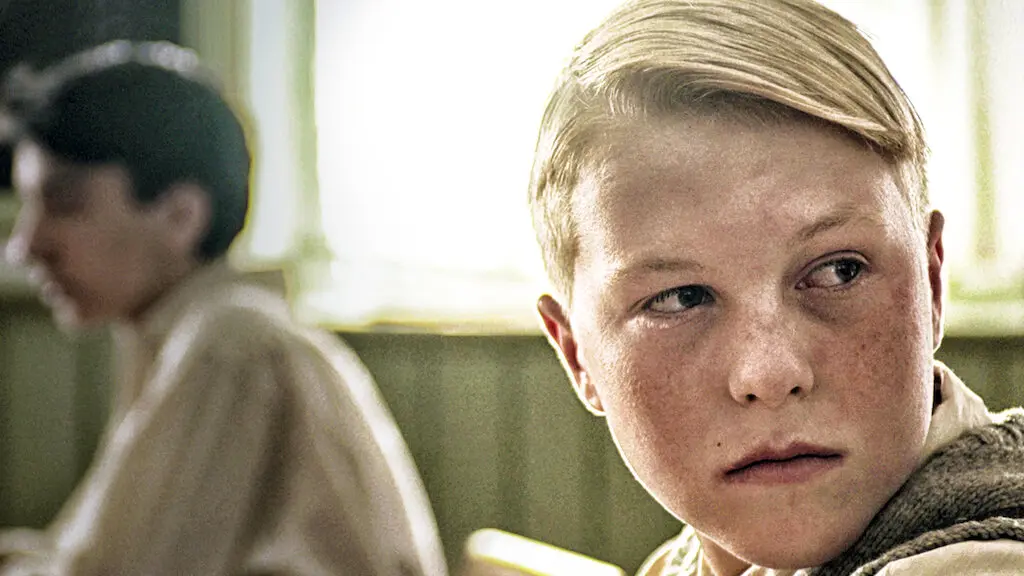Summary
Forgive Us Our Trespasses captures one of the darkest periods of the history of humanity and raises essential questions relatable in the modern day.
This review of the Netflix short film Forgive Us Our Trespasses contains spoilers.
In 1939, Hitler implemented the Aktion T4 program, which led to the murder of 300,000 disabled people while sterilizing an additional 400,000. The victims of this genocide mostly were children. More than half a century later, filmmaker Ashley Eakin tries to capture this brutal genocide through her new short film Forgive Us Our Trespasses.
Released on Netflix, the film tells the story of a child with disabilities and his mother’s struggles in a Nazi Germany countryside. The mother is a teacher in the local school who is forced to teach the selected curriculum by the Nazis, although she is not a supporter of them. She is very supportive of her son. She always empowers him with her teachings of not being afraid of the cruel world despite knowing the fire is knocking outside. There are also some hints that she is associated with the resistance force against the Nazis, and these teachings are the training for her son in the fighting.
But the fight is not a binary of good vs evil. It is a fight for existence, which the little ones are forced to involve to save their innocence. The film starts with a quote from famous German theologian Dietrich Bonhoeffer, “The test of the morality of a society is what it does for its children.” But if the morality of the society becomes corrupt, the children have to make an effort to have their morality right. Forgive Us Our Trespasses is the story of that struggle. And, with the eyes of this disabled child, Peter, this becomes a hard-hitting film in under 15 minutes.
Knox Gibson as Peter is very good in the role. His expressions through the different emotional moments give us several moments of uneasiness, sympathy and pride. This is a demanding role for him as the main crux lies in his performance. So, the performance has to be perfect to achieve its intended emotional effect. And Gibson passes it with good marks.
As a short film, director Ashley Eakin does her best to compose the whole story perfectly in 14 minutes. No doubt, it is pretty well composed in this limited time. But, I believe the story needs more to tell the audience somewhere down the line. The makers should think about making it into something that will offer the audience something to connect more with these powerful characters. In my opinion, perhaps a feature film out on this subject will be far more affecting.
The film ends with the thought-provoking questions of if there is any meaning in fighting this unequal war. The answer is unknown, but it dares to ask the questions when the corruption in the society is getting similar to that era (Nazi era). And, for that, it should be appreciated.
What did you think of the Netflix short film Forgive Us Our Trespasses? Comment below.




